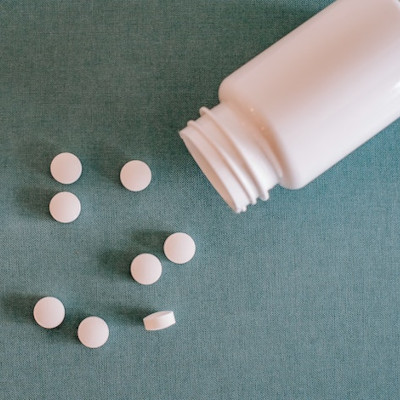
Percocet Withdrawal Symptoms, Timeline, and Treatment Options

Many times we have been prescribed a drug, it is to help us overcome a problem we are having. What we don’t often realize about the drugs we are prescribed, however, is that many of them carry side effects and the risk of addiction. With the risk of addiction also comes the risk of withdrawal. When you become addicted to a drug, especially a prescription one, it is important to find the right treatment to meet your needs and get clean of the addiction.
Elite Home Detox offers in-home detox and treatment services for those suffering from addiction. We believe that everyone deserves the opportunity to achieve sobriety. In this post, we are going to discuss the drug Percocet, what it is, what it does to the body, the withdrawal symptoms, the withdrawal timeline, and compare the different treatment options available for those suffering from addiction.
Table of Contents:
What is Percocet, and why is it addictive?
Percocet is unlike many of the prescription pain relievers that people are prescribed. Most of the prescribed pain relievers are considered opioid or non-opioid pain relievers. Percocet is considered a combination drug because its components consist of an opioid component and a non-opioid component.
While this makes it particularly effective at treating moderate to severe pain in both the short and long term, it makes it incredibly addictive as well.
All opioids are known to be incredibly addictive, and Percocet is no exception. However, there are specific reasons why Percocet and other drugs like it are so addictive.
One of the reasons that drugs like Percocet are so addictive is due to the vast quantity of drugs that are prescribed on a regular basis. Even though opioids like Percocet are highly regulated, they are very useful, so they are still used as a primary form of treatment for both acute and chronic forms of pain. This large number of prescriptions alone is enough to mean that some people are going to become addicted.

Another reason that Percocet is so highly addictive and prone to abuse is that many people enjoy the way that it makes them feel to the point that they want to keep taking more of it in order to feel that feeling again. Most opioids produce a feeling of euphoria along with the pain relief that many people associate with a type of high. Given the very nature of the drug itself, the more a person takes of the drug and the longer they take it, the more of the actual drug it takes to produce these effects. This leads to drug-seeking behavior and some of the other signs and symptoms that are associated with a full-blown addiction.
Lastly, Percocet and other opioids are known to be highly addictive because of the way that they interact with the body. When you take opioids, they work by acting on both the brain and central nervous system. Over time the drug alters the way that pain receptors between the and the brain behave, and the body adapts to the presence of the drug. Once this happens, this is known as chemical dependence. The body also becomes more resistant to the effects of the drug, so it takes more of it to produce said effects. At this point, a person begins using more and more to get the effect of the drug until the point they are completely addicted.
Once a person is fully addicted to a substance, they are most likely to experience withdrawal should they abruptly stop taking the substance. As most folks know, withdrawal can be incredibly dangerous if not dealt with under medical supervision.
Percocet withdrawal symptoms and timeline
It’s important to note that withdrawal symptoms can vary by person based on a variety of factors such as age, gender, health history, length of use, and dosage.
While withdrawal is different for everyone, there are some common symptoms to look out for. These include changes in mood or behavior such as anxiety, depression, suicidal thoughts or actions, as well as mood swings. There are also physical symptoms such as sweating, nausea, vomiting, diarrhea, runny nose, and teary or watery eyes, as well as muscle pain or weakness.
Other behavioral symptoms include excessive tiredness, sleep disturbances, nightmares, and hallucinations.

Those are the more common symptoms. However, there are also more severe symptoms that may occur for those with long-time use. These include heart palpitations or rapid heartbeat, trouble breathing, dilated pupils, abdominal cramps, muscle spasms, tremors, and even seizures.
In terms of timeline, symptoms typically onset within 24 hours of stopping the use of the drug and may last for up to two weeks. In most cases, the most severe symptoms happen within the first three days of stopping as the body starts to adjust to the lack of the drug. Symptoms may appear to come and go through, so it is best to stay monitored by medically trained professionals throughout the withdrawal process to avoid complications.
Treatment options
There are three primary forms of treatment when it comes to detox and withdrawal from substance abuse/addiction. These are inpatient rehab, outpatient rehab, and in-home care.
Inpatient rehab
Inpatient rehab involves a person going to a licensed treatment facility and staying at the facility for the duration of treatment. This is best for those who have no privacy concerns and have a history of addiction.
Outpatient care
Outpatient care is where a person goes to a facility for treatment and returns home. For those with active lifestyles who need treatment but want to do so outside the home, this is often the best choice.
In-home care
In-home care is when medical staff come to your home to monitor the detox process and administer treatment. This is the best option for those that want personalized care and who care about their privacy and discretion while they receive the treatment they need.
Elite Home Detox provides in-home detox and treatment services for those that want a different approach to addiction treatment.
EHD Can Help You Through The Withdrawal Process
Elite Home Detox is here for you if you need help withdrawing from Percocet or any other addictive drug. We can provide you with the one-on-one care you need while going through detoxification and withdrawal symptoms caused by addiction. And best of all, we come to you! You can make a full and lasting recovery in the comfort of your home with the help of our expert medical team. Contact us today to learn more.


